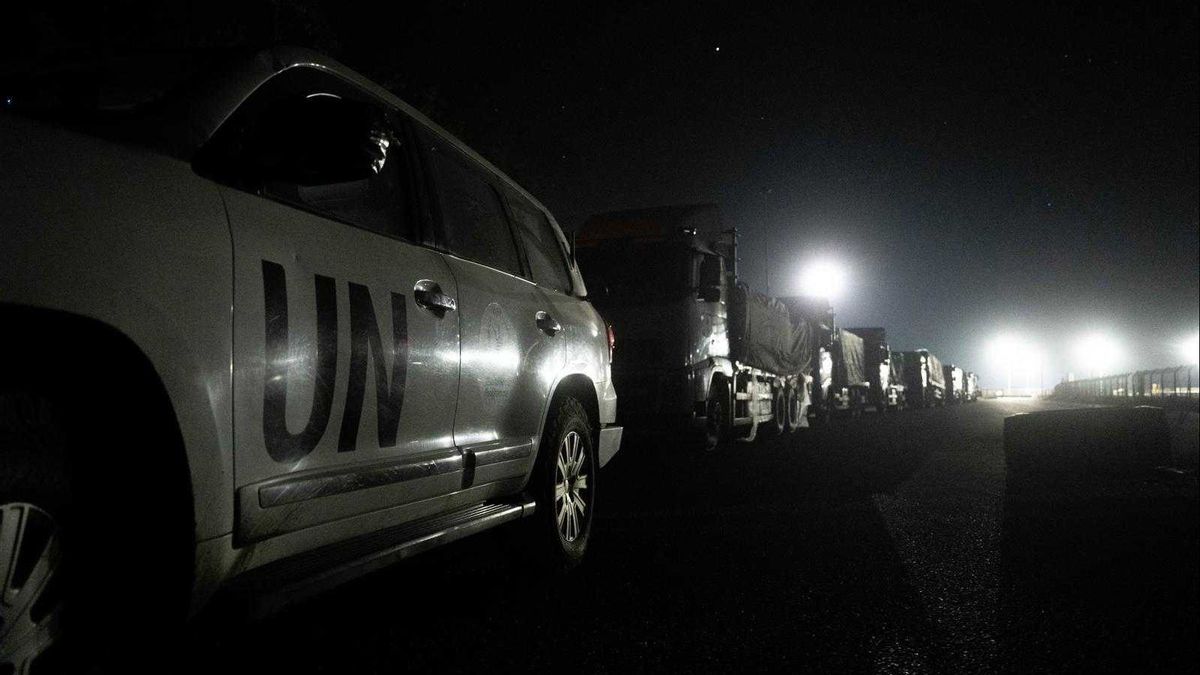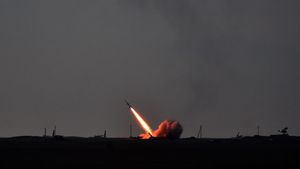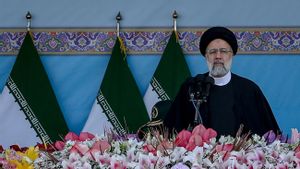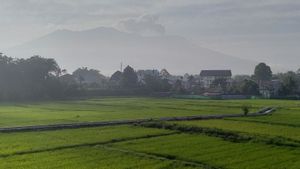JAKARTA - The Human Rights Office said on Tuesday that Israel was still imposing "unlawful" restrictions on humanitarian aid for the Gaza Strip, even though Israel and a number of countries said these restrictions had been relaxed.
The Hamas-Israel war in Gaza that broke out last October 7 changed much of the Gaza Strip, with hundreds of thousands of people now displaced and crowded into disease-ridden shelters.
The amount of aid now going to Gaza is disputed, with Israel and Washington saying aid flows have increased in recent days, but UN agencies say the amount remains far below minimum levels.
"Israel continues to impose unlawful restrictions on the entry and distribution of humanitarian aid, carrying out widespread destruction of civilian infrastructure," UN human rights office spokeswoman Ravina Shamdasani said at a press conference in Geneva, repeating calls for Israel not to curb access, quoted by Reuters April 17.
Israel, which denies blocking humanitarian aid to Gaza, has faced growing international pressure to let more supplies into the Gaza Strip, since it attacked an aid convoy on April 1 that killed international aid workers.
"Those who send or try to access humanitarian aid must not be attacked," Shamdasani stressed.
Yesterday, the Ministry of Health in Gaza announced that the number of Palestinians killed in Gaza had reached 33,843 and the number of injured reached 76,575 people since the Israel-Hamas conflict broke out on October 7 2023, quoted from Xinhua.
SEE ALSO:
The UN Children's Agency (UNICEF) called for increased medical evacuations from Gaza, and said less than half of appeals had been successful.
"With at least 70 children injured every day, we need to increase the number of medical evacuations so that children can access the health services they desperately need," said UNICEF's Tess Ingram at a press conference alongside Shamdasani, describing cases of children she had encountered with injuries. shoot and amputation.
"Their broken bodies and fractured lives are evidence of the brutality forced upon them," he said.
The English, Chinese, Japanese, Arabic, and French versions are automatically generated by the AI. So there may still be inaccuracies in translating, please always see Indonesian as our main language. (system supported by DigitalSiber.id)


















